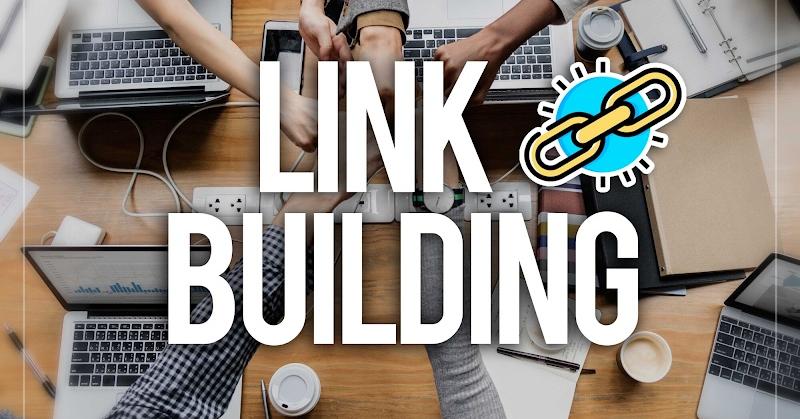When working internationally, there are several measures you need to take. This is especially true if you’re going to perform link-building globally.
Why? Because not taking the necessary steps can result in your site suffering permanent damage. Not only can you risk a manual action from Google but also a loss in organic traffic and page rank if you’re not careful.
Here’s a look into the dos and don’ts of international link building. Let’s get into it!
Produce Quality and Relevant Content
One of the most important dos is to produce quality and relevant content. Quality content is essential to attract the attention of potential link partners.
Content can include informational articles, videos, and even infographics. The content should be both informative and engaging. It should be optimized for the target country’s culture, language, and interests.
It should be updated regularly as search engines reward active websites. It should also include outbound links to relevant sites to show the website’s authority on the subject.
Pursue Backlinks on Authoritative and Relevant Sites
It is important to target sites that are related to your website and have other high-quality websites linking to them. It is also important to perform keyword research and to ensure the backlinks come from authoritative, global sources.
Additionally, it is advised to use anchor text variations when linking for maximum SEO results and to ensure backlinks are natural and not placed in a spammy manner. It is also important to ensure the sites are mobile-friendly, as well as consider regional differences and language variants.
Finally, it is suggested to build relationships with webmasters in different countries to create international link-building partnerships.
Look For The Quick Wins
When specifically focusing on “Look for the Quick Wins,” it is important to adhere to the dos and don’ts to avoid any costly missteps. The primary “do” to focus on is researching the target country’s cultural norms and customs – crafting personalized content that is both relatable and compelling.
Additionally, understanding the target audience and what digital marketing platforms/influencers are most prevalent is critical for successful outreach. On the other hand, some of the main “don’ts” include not optimizing content for the wrong target market and not ignoring local media networks.
Lastly, while link building can be a great way to boost rankings in international markets, there are some things to keep in mind when using HARO services. Always choose relevant link-building opportunities, pay attention to where links are coming from, respond quickly and professionally to queries, and follow all rules and guidelines.
Adopt a Holistic Approach to Link Building
Adopting a holistic approach to link building is key to ensuring your website’s success regarding international link building. It’s important to review all approaches to link building and consider two main dos and don’ts.
First, always ensure links are relevant and are from reputable sources – this is one of the most important components of successful international link building. Second, research all potential links and profits produced from your link-building efforts.
Additionally, ensure organized link building with an organized linking structure. Finally, be sure to avoid any links from low-quality sources or any link-building attempts that involve large networks of low-quality sites.
Don’t Engage With Low-Quality Products
Firstly, one should never engage with low-quality blogs, low-quality link directories, and sites that reek of spammy content. Spammy sites offer unreliable and potentially damaging links which can hurt a company’s reputation.
Instead, focus on creating content and targeting authoritative sites with high page rankings. This can be done by targeting sites with similar content and topics to create a connection.
Additionally, focus on quality and not quantity when it comes to international link building. Start by creating and submitting top-notch content, then look for opportunities to link with other reputable sites.
Create relationships with other content creators and aim for high-level, quality links rather than a large number of low-level links. Finally, when choosing a language for the website content, target a linguistically appropriate market.
Don’t Suggest Specific Anchor Text
Anchor text is the words used in a link that leads to a web page; if the anchor text is too specific, it may trigger a red flag for search engines. Instead, use generic terms, such as ‘click here’ or ‘learn more’, to appear more natural to search engine algorithms.
Avoid link exchanges with other websites as this can appear suspicious to search engine algorithms; instead, focus on natural link building. Organic link building includes creating quality content that other websites are willing to naturally link to, as well as reaching other websites within your industry or mentioning them in a blog post.
Don’t Participate in Link Exchange Schemes
A key ‘Don’t’ of link building relates to link exchange schemes, which can offer a short-term increase in rankings, but in the long-term, it will usually result in a decrease. Link Exchange Schemes involve two or more websites agreeing to quote a link from each other.
This creates a link that provides no value to the user and can lead to a ban if used as part of a link-building strategy. It is important to remember to keep a low profile when carrying out link-building for international websites and stick to consistently high-quality links from authoritative websites with content related to your website’s topic.
Don’t Engage in Black-Hat Link Building Tactics
As any SEO specialist will tell you, “blackhat” link-building tactics are one of the worst mistakes a website owner can make. Blackhat tactics focus on the quantity of links rather than quality and often lead to Google penalties.
Don’t engage in link buying or link selling, and don’t use any automated/bot services to generate backlinks. Stay away from spammy link-building practices such as submitting link directories, filling out low-quality web directories, submitting link wheels, etc.
Know the Do’s and Don’Ts of International Link Building Today
Link building is a core component of SEO and a key strategy to help your business rank on SERPs. The dos and don’ts of international link building can help ensure you’re doing the right things to drive traffic from international search markets.
Focus on creating valuable content, use local URLs and directories, and target relevant international sites to generally increase your reach. Now it’s time to get to work; let’s get started on your international link-building strategy!
Did you find this article helpful? Check the rest of our blog now!






